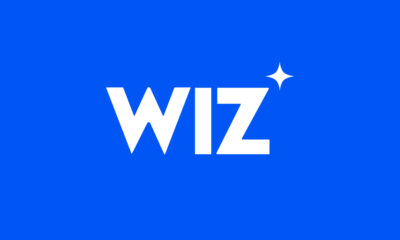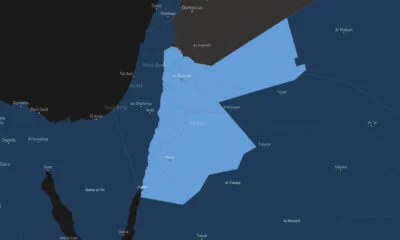News
Cisco Highlights 2024 Cybersecurity Trends Ahead Of Black Hat MEA
The company has revealed a rise in identity-based and ransomware attacks during Q3, plus revealed its own AI-ready security solutions.

In the lead-up to Black Hat MEA 2024 in Riyadh (November 26-28), Cisco, a global leader in networking and security, has unveiled the critical cybersecurity trends observed during the third quarter of 2024. The insights, drawn from the research of Cisco Talos (the firm’s renowned threat intelligence team) point to a significant surge in identity-based and ransomware attacks.
Between July and September 2024, identity-focused attacks (most notably those targeting credential theft), surged, representing 25% of Cisco’s incident response cases. These types of intrusions have become increasingly prevalent due to the accessibility of simple-to-use hacking tools.
Meanwhile, ransomware attacks continued to dominate the threat landscape, constituting approximately 40% of cases. The quarter saw the emergence of several new ransomware variants such as RansomHub, DragonForce and RCRU64, in addition to recurring threats like BlackByte and Cerber.
Education, financial services and the manufacturing industry faced the brunt of these attacks, collectively accounting for over 30% of reported breaches. This pattern mirrors trends identified in earlier quarters of 2024, suggesting hackers are consistently and deliberately targeting these industries.
Salman Faqeeh, Managing Director of Cisco Saudi Arabia, stated: “The rise in identity-based attacks and persistent ransomware threats reflect the evolving cyber landscape. At Cisco, our priority is equipping customers with advanced security solutions to bolster their digital resilience.” He added, “Black Hat MEA is an ideal forum to share threat insights and unveil our innovations that mitigate identity-based attacks, prevent breaches, and close exploit gaps”.
Also Read: Joby Begins Construction Of Dubai’s First Vertiport For Air Taxis
At Black Hat MEA 2024, Cisco will serve as a Strategic Sponsor under the theme “Innovating a New Era of Security,” showcasing its latest advancements in cybersecurity. A particular focus will be on securing AI-powered data centers and distributed environments, ensuring robust protection across all devices and applications.
Splunk, a cybersecurity company which is now part of Cisco, will also exhibit its own cutting-edge solutions, including next-generation Security Operations Centres (SOC) and tools for Operational Technology (OT) environments. Finally, Lothar Renner, Managing Director of Cisco Security, EMEA, is set to deliver a keynote titled “Redefining Security in the Age of AI,” spotlighting Cisco’s forward-looking approach to security in the evolving threat landscape.
Attendees at Black Hat MEA 2024 can visit Cisco at booth H1-T20 at the Riyadh Exhibition & Conference Centre between November 26-28.
News
Google Releases Veo 2 AI Video Tool To MENA Users
The state-of-the-art video generation model is now available in Gemini, offering realistic AI-generated videos with better physics, motion, and detail.

Starting today, users of Gemini Advanced in the MENA region — and globally — can tap into Veo 2, Google’s next-generation video model.
Originally unveiled in 2024, Veo 2 has now been fully integrated into Gemini, supporting multiple languages including Arabic and English. The rollout now brings Google’s most advanced video AI directly into the hands of everyday users.
Veo 2 builds on the foundations of its predecessor with a more sophisticated understanding of the physical world. It’s designed to produce high-fidelity video content with cinematic detail, realistic motion, and greater visual consistency across a wide range of subjects and styles. Whether recreating natural landscapes, human interactions, or stylized environments, the model is capable of interpreting and translating written prompts into eight-second 720p videos that feel almost handcrafted.
Users can generate content directly through the Gemini platform — either via the web or mobile apps. The experience is pretty straightforward: users enter a text-based prompt, and Veo 2 returns a video in 16:9 landscape format, delivered as an MP4 file. These aren’t just generic clips — they can reflect creative, abstract, or highly specific scenarios, making the tool especially useful for content creators, marketers, or anyone experimenting with visual storytelling.
Also Read: Getting Started With Google Gemini: A Beginner’s Guide
To ensure transparency, each video is embedded with SynthID — a digital watermark developed by Google’s DeepMind. The watermark is invisible to the human eye but persists across editing, compression, and sharing. It identifies the video as AI-generated, addressing concerns around misinformation and media authenticity.
While Veo 2 is still in its early phases of public rollout, the technology is part of a broader push by Google to democratize advanced AI tools. With text-to-image, code generation, and now video creation integrated into Gemini, Google is positioning the platform as a full-spectrum creative assistant.
Access to Veo 2 starts today and will continue expanding in the coming weeks. Interested users can try it out at gemini.google.com or through the Gemini app on Android and iOS.


























